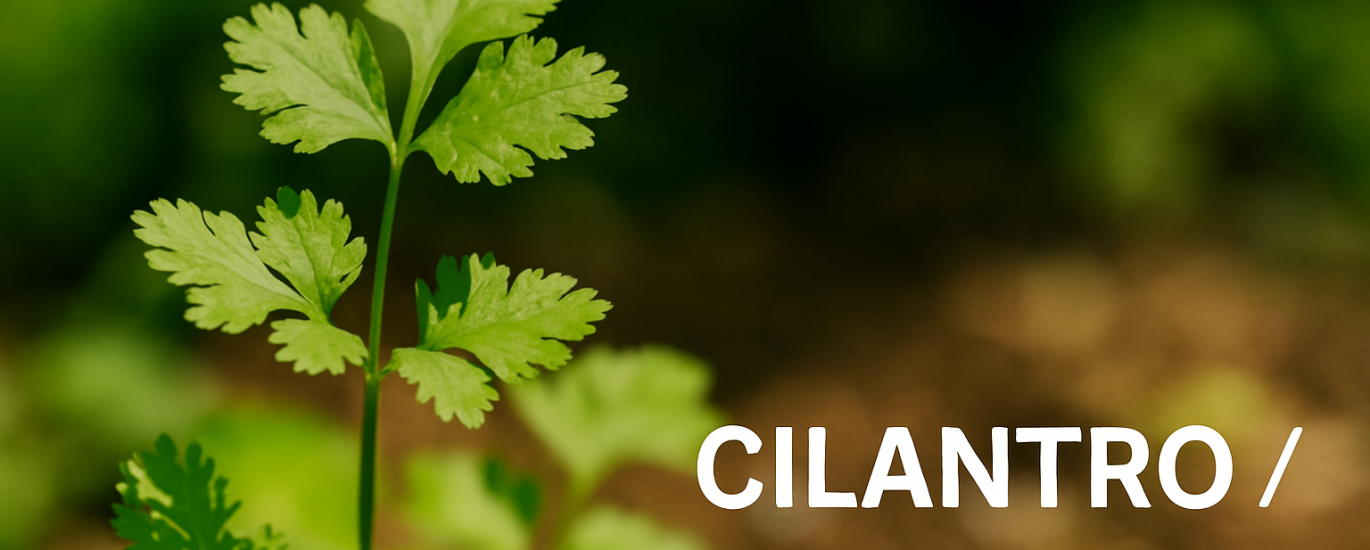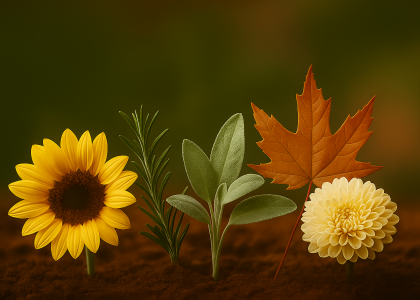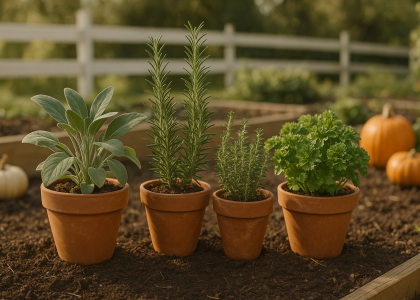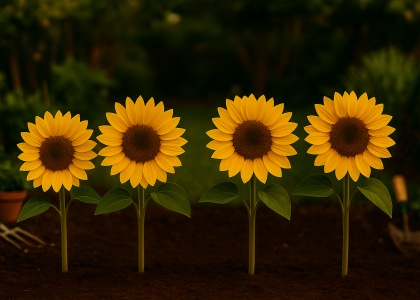Cilantro Overview
| Attribute | Description |
|---|---|
| Genus Name | Coriandrum sativum |
| Common Names | Cilantro (leaves), Coriander (seeds) |
| Plant Type | Herb, Annual |
| Light | Full Sun to Part Shade |
| Height | 12 to 24 inches |
| Width | 8 to 12 inches |
| Flower Color | White |
| Season Features | Spring, Fall |
| Special Features | Edible, Aromatic, Dual Harvest |
| Zones | 2–11 (grown annually) |
| Propagation | Seeds |
Why Cilantro Is a Kitchen & Garden Essential
Cilantro is a herb of two personalities: its delicate green leaves offer a bright, citrusy punch perfect for Mexican, Indian, and Asian dishes, while its dried seeds—known as coriander—deliver warm, spicy notes to baked goods, stews, and pickles.
Its feathery foliage, umbrella-shaped flowers, and versatility in both flavor and form make it a wonderful addition to edible gardens, herb spirals, and small containers. A favorite among cooks and pollinators alike.
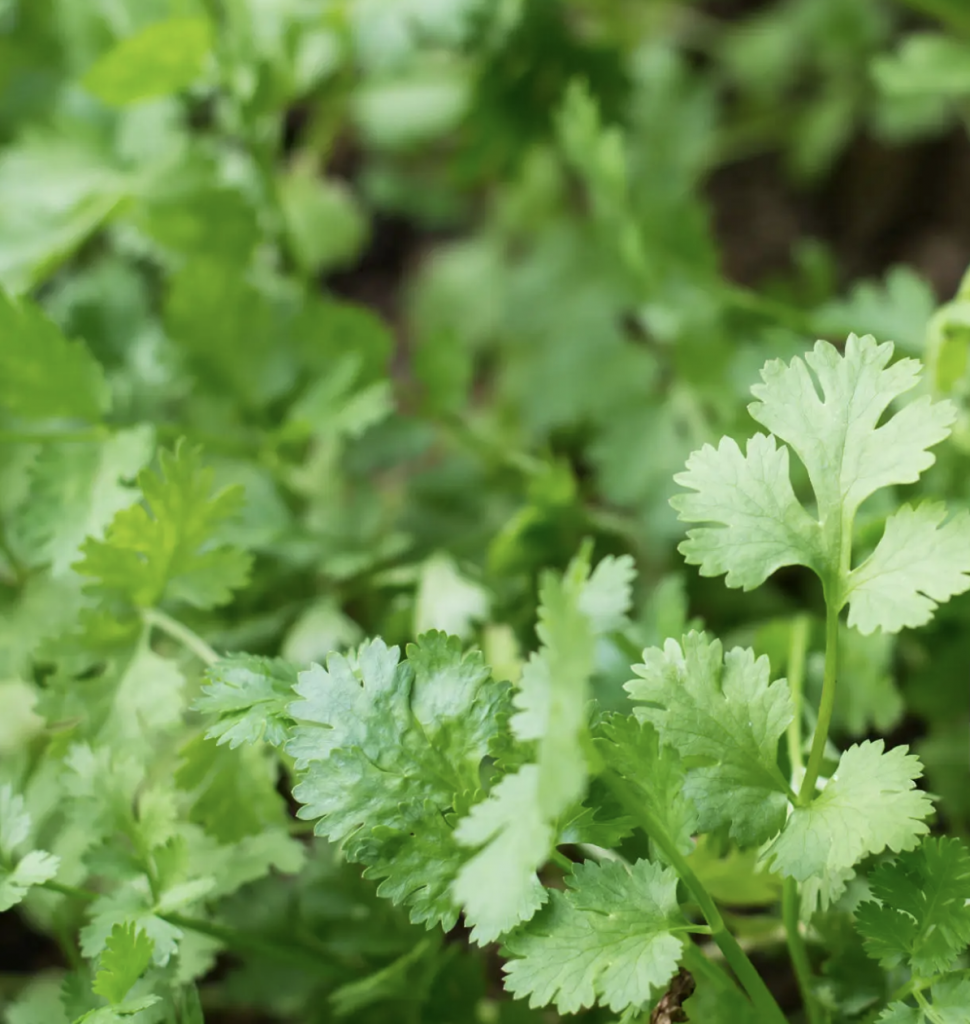
Where and How to Grow Cilantro
Cilantro prefers cool seasons and bolts (goes to seed) quickly in heat. It’s best grown in spring and fall—or year-round in mild climates.
Soil: Loose, well-drained soil rich in organic matter. Ideal pH is 6.2–6.8.
Planting: Sow directly outdoors, or indoors in deep pots. Thin to 6 inches apart. Avoid transplanting once established.
Climate Tip: In hot zones (8–11), grow cilantro in partial shade or plant in fall through early spring.
Cilantro Care Guide
Light
Full sun in cool weather; partial shade in hot regions.
Water
Keep soil evenly moist, especially in hot or windy conditions. Avoid soggy soil, which can cause rot.
Temperature
Optimal growing range: 50–75°F (10–24°C). Bolts quickly above 80°F.
Fertilizer
Enrich with compost before planting. Supplement lightly with nitrogen every 3–4 weeks if needed.
How to Harvest Cilantro and Coriander
- Leaves (Cilantro): Begin harvesting when plants are 4–6 inches tall. Pinch outer stems first.
- Flowers: Attract pollinators and indicate bolting.
- Seeds (Coriander): Let plants flower and dry. Harvest when seed heads turn brown.
Tip: To delay bolting, harvest frequently and water well. For seed harvest, let a few plants flower undisturbed.
Cilantro in Containers
Cilantro thrives in containers 8–12 inches deep. Choose wide pots to allow for succession sowing.
Tip: Use lightweight, well-draining potting mix. Pair with fast-growing salad greens or spring radishes.
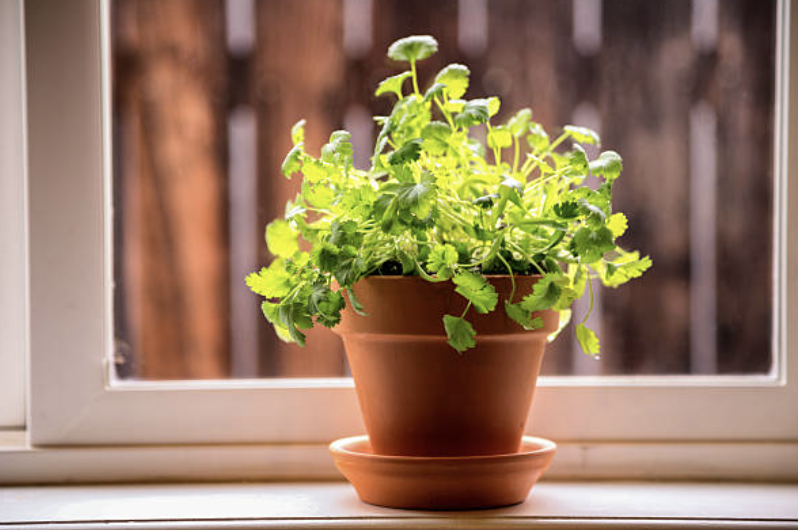
Propagation: Always from Seed
Cilantro has a long taproot and dislikes transplanting.
- Direct sow outdoors in early spring or fall.
- Succession sow every 2–3 weeks for a steady supply.
- For coriander seed harvest, allow a few plants to flower fully and dry on the stalk.
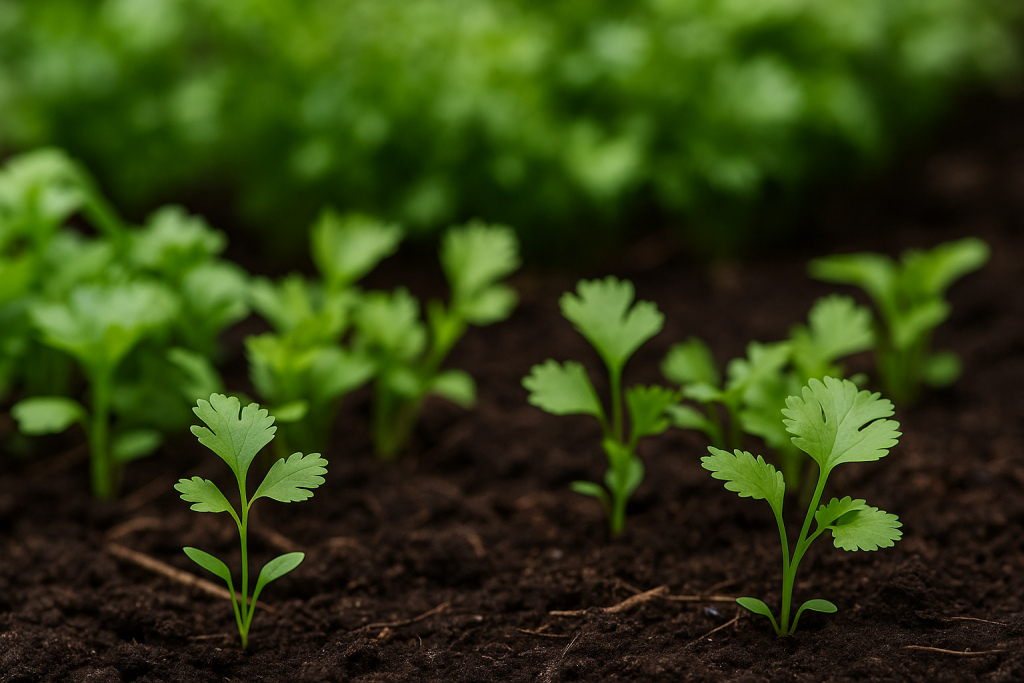
Common Problems & Natural Solutions
| Problem | Solution |
|---|---|
| Bolting too early | Provide partial shade and consistent moisture; grow in cooler seasons |
| Yellowing leaves | May indicate poor soil—add compost or dilute organic fertilizer |
| Aphids or leaf miners | Rinse off with water or use neem oil; encourage ladybugs |
| Poor germination | Use fresh seeds; soak overnight before sowing |
Best Cilantro Varieties to Try
- ‘Slow Bolt’: Designed to delay flowering—ideal for warm climates.
- ‘Santo’: Vigorous, upright, great for bunching and cutting.
- ‘Calypso’: Leafy and slow to bolt—excellent for containers.
- ‘Leisure’: Classic choice for both leaf and seed production.
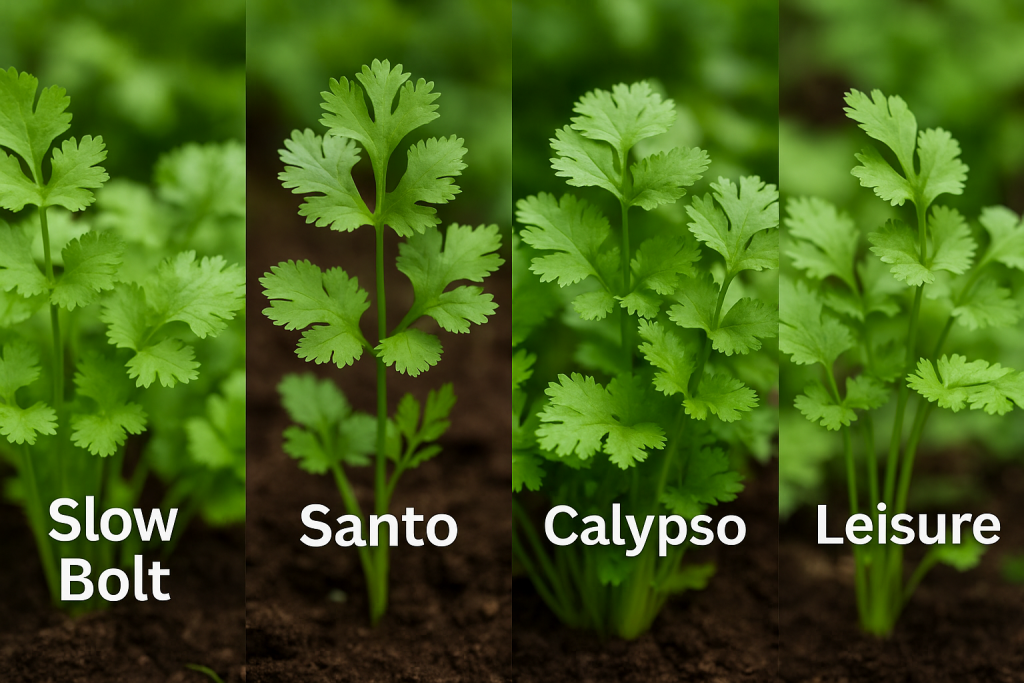
Design Ideas: Planting Cilantro in the Healing Garden
- Kitchen Container Trio: Combine cilantro with basil and chives for a flavorful kitchen window box.
- Spring Raised Beds: Edge your vegetable beds with cilantro for fast early harvests.
- Butterfly Border: Let cilantro flower—its white blooms attract lacewings and beneficial pollinators.
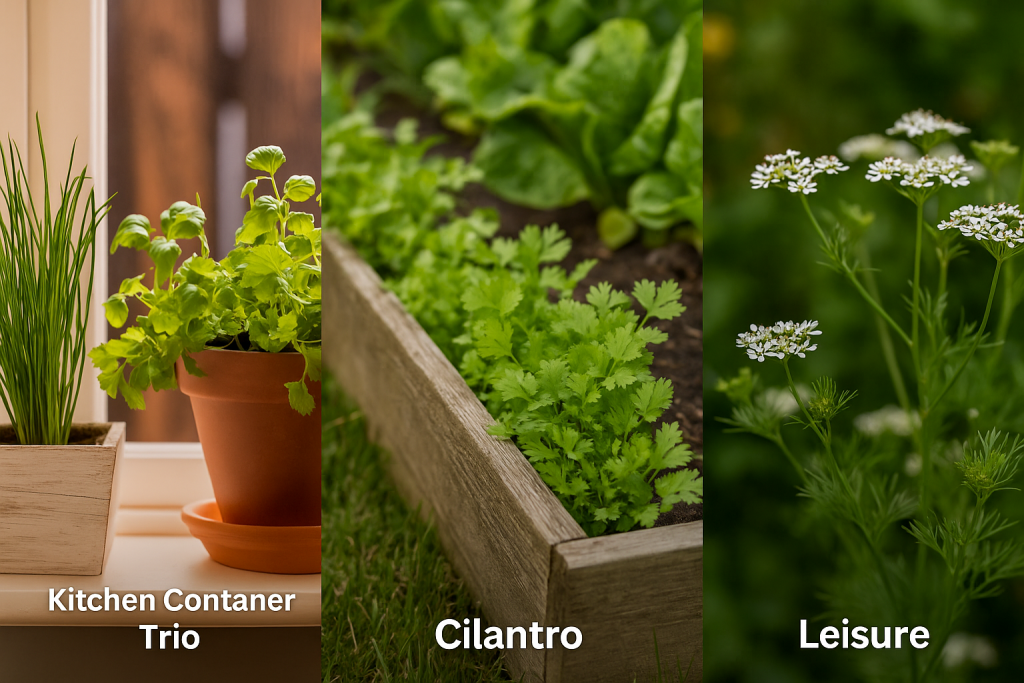
Frequently Asked Questions
Can I grow cilantro indoors?
Yes, in a sunny south-facing window. Keep in mind it may bolt quickly indoors unless temperature and light are stable.
Can I harvest both leaves and seeds from the same plant?
Yes, but usually you harvest one or the other. Once cilantro bolts, the flavor of the leaves diminishes.
Why does my cilantro flower so fast?
This is called bolting. It’s natural in warm temperatures or if plants are stressed. Sow in cool weather and harvest often.
Cilantro Is Fast, Fragrant, and Full of Purpose
Whether you love it or loathe it, cilantro offers fast-growing green abundance and dual-purpose value. From tacos to tea blends, and seed spice to pollinator bloom, this adaptable herb gives back more than it takes. A humble hero for the healing garden.

